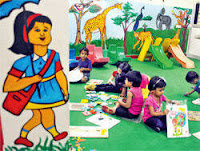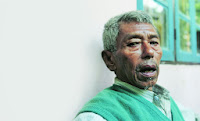[MLE-ECCE] National ECCE policy approved

Dear "multilingual education" and "early childhood education" friends, Congratulations, the union cabinet the other day approved the National ECCE policy. The official press statement you can read here: National Early Childhood Care and Education (ECCE) Policy. The policy is strong on the use of the mother tongue of the children. In the press this is mentioned, but does not get major attention. The article " Govt fixes size, language, nap time for playschools" in the Times of India e.g simply states: "The norms also specify that the primary medium of instruction will be mother tongue or local language". Maybe later, one of the quality news magazines will zoom in to the issue. For now we can celebrate with this milestone!




